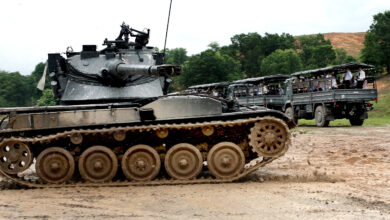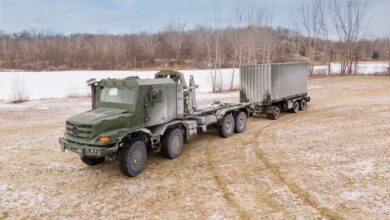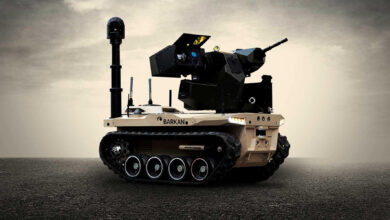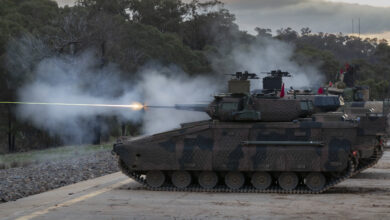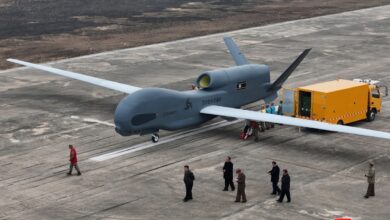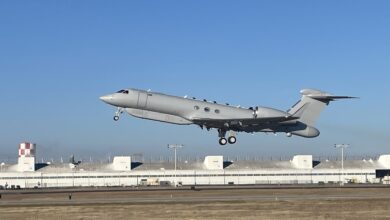Australian Army Trials Autonomous Truck Convoy
An Australian army project to develop a fleet of autonomous trucks using “leader-follower vehicle” technology has completed a series of trials.
The technology allows a group of vehicles to autonomously “travel off-road in far more complex, unstructured, rough terrain – over river beds and through creeks – even when there’s no markings on the ground.”
$12.2M Autonomous Vehicle Investment
The 3.5 million Australian dollars ($2.6 million) second-phase project, awarded last year to the Deakin University Institute for Intelligent Systems Research and Innovation (IISRI), is part of the Australian Army’s $12.2 million investment in “experimentation, prototyping and exploration of autonomous vehicles and emerging technologies.”
The Australian Department of Defense had initially invested $2.9 million in the project’s development phase.
The IISRI and the Army Robotic and Autonomous Systems Implementation and Coordination Office (RICO) have developed the technology using modified Land 121 40M cargo trucks. The two-week trials involved a convoy of five vehicles.
Leader-Follower Vehicle Technology
IISRI Director Professor Saeid Nahavandi explained the technology last year, saying that it is focused on large vehicle convoys. “The technology is vehicle agnostic, furnished with a range of advanced sensors – powered by IISRI’s home-grown software algorithms – which are advanced control and AI enabled and embedded in the vehicle control architecture to provide very safe and trustworthy manoeuvres.”
Speaking about the development of autonomous vehicles and emerging technologies, the Minister for Defence Industry Melissa Price said that “these technologies are ‘disruptive technologies’ that provide marked advantages on the modern battlefield by bolstering [Australia Defense Forces] capability while protecting Australian personnel.”
“This is exactly the type of capability that the Morrison Government announced in the four new Sovereign Industrial Capability Priorities which will help to build a robust, resilient and internationally competitive defence industry in Australia.”
In the next phase, RICO and the IISRI will work with the Australian Road Research Board to test the technology on public roads, “with further refinement, performance enhancement and understanding of road rules.”



